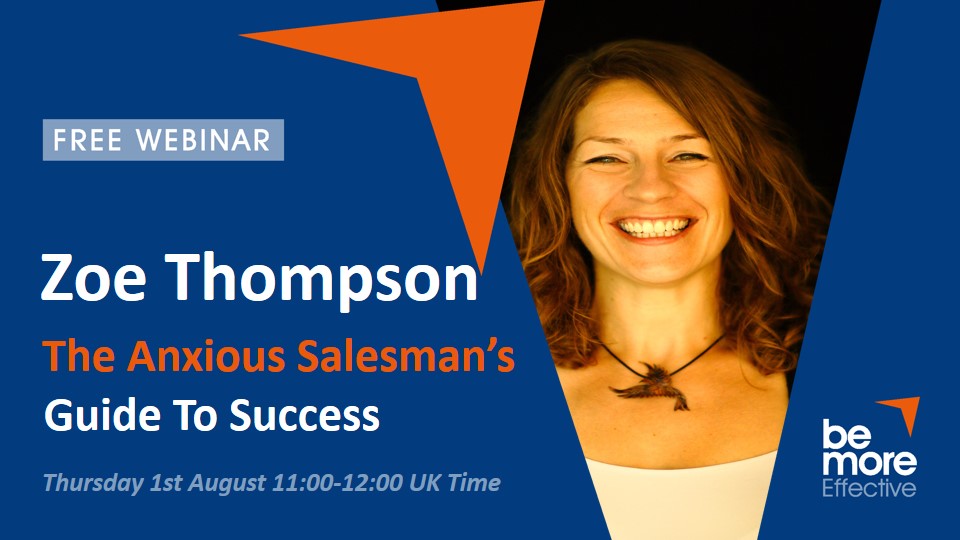Relationships Lead to Sales

Concentrate on opening trust-filled relationships instead of closing sales.
In the world of online sales, social proof carries a lot of weight.
That proof could come in the form of testimonials - people unknown to one another who buy from you - or via a very clever pop-under - a text message that appears to come up from the bottom of the screen and which names someone from somewhere around the world who has just bought the item. It’s a way of generating excitement, in much the same way as the decrease in the limited quantity of items does on a shopping channel.
Offline there’s another kind of social proof. It comes from your friends. How often have you asked someone you trust to recommend a product or supplier? A dentist, for instance, or a car mechanic, or home decorator.
All of us want people to do work for us who we can trust. We don’t want to take a chance on someone we don’t know - someone without whom we already have a relationship. We want to feel confident from the beginning that the person we’re paying is up to the job and can be trusted to do it.
Affiliate marketing succeeds because of this. Someone builds a relationship with a number of other people. Various products are recommended by that person for which a small commission is paid when their audience buys it. You will have seen links to a wide range of products in the “show notes” below many of the clips on YouTube, for instance.
People do this kind of thing on their websites, too. If someone has a cooking website, they may recommend pans, dishes, appliances, or special ingredients. The URLs of these products are affiliate links from the suppliers for the person who recommends them. And each time someone uses those links to buy, the person for whom the link was created earns a small commission. Small commissions, however, add up, so much so that companies such as Amazon have programmes to accommodate those who want to use them.
The point of these examples is to illustrate the power of relationships; to demonstrate that it’s because of the relationships that already exist that sales are made.
This is one of the benefits of joining a professional association, such as the Rotary Clubs. If you’re an active member, which at the very least means that you attend the meetings, then you can expect that there will be opportunities to get to know other members without the pressure of your business lurking in the background. That’s because the purpose of the organisation is to serve others in some capacity. And so you’re using your skills and resources to that end. In such an environment, people get to know one another in a way that’s deeper than they would on the job.
As people get to know you, they understand you better. Friendships are formed. Trust develops. And so if you do approach them for help in your business, then they’re ready to give it because they already know you. You are considered to be a trustworthy person.
Exactly the same thing is true with sales. People buy from those that they trust. And just like the trust that exists between online business people and their audience, and the trust that developed among members of service organisations such as the Rotaries, that trust is the result of a relationship that began long before.
In other words, relationships take time to build.
This is one of the things that can obstruct business with the Americans. Even though there are many chapters of the Rotaries in that country, not to mention a myriad of other non-business and service groups, they’re accustomed to making deals in much less time than people on our side of the Atlantic.
Many of them don’t understand the need for all the “wining and dining,” while business people over here are unwilling to make deals without it. It’s ironic, however, that when the shoe is on the other foot, as it were, salespeople in this country expect people to buy without first taking the time to build that all important relationship.
Prospects and clients understand deadlines and targets, but when it comes to you making sales to achieve them, they consider that to be your problem; not theirs. And that means that you jeopardise your chances of closing the deal if you try to shortchange the maturation that’s needed in the relationship.
Just as you feel an inner mistrust when someone does that to you, so your prospects sense this when you do it to them. It foments suspicion and makes one feel that there were ulterior motives for forming the relationship. That’s one reason why service organisations work also create business opportunities. It’s because your primary motive for being a member is because you believe in the cause; not the business that may come as a result. In fact, you’d do it even if you never got any business.
When you create distrust with anyone, you damage the relationship; and if your affiliation with that person is still in its infancy, then you may destroy it altogether.
So when you try to force a deal without the benefit of a strong relationship, you automatically put yourself into the camp of all the other salespeople who do exactly the same thing. Clearly, this is not the way to differentiate yourself from the crowd.
You begin to sound like politicians, for instance, who often will tell you anything in order to get your vote. Politicians want your vote because more than anything else, they want to be reelected. Your needs as their constituent are incidental.
The same thing is perceived by prospects when you try to get them to buy from you before they trust you enough to do it. It places the goal of the sale on you and your needs, and makes the needs of the prospect of lesser importance.
Once you create that impression, you’re ‘toast’. It’s very difficult to ‘clear the air’ and begin again. That’s because without the strength of that prior relationship, the suspicions still exist.
You couldn’t be trusted at the beginning, so why should you be trusted now?
The sensible thing at this point is to eat humble pie. Admit your error and presumption, and try to win the opportunity for another chance. But don’t bet the farm that you’ll be given it. After all, how do you react when someone does that to you? Do you give them another chance, especially if you don’t know them, or don’t know them very well?
What should you do instead?
The approach that you should use instead is to decide early who you want to do business with, and then start to cultivate that relationship.
The word cultivate is an interesting one. It means to prepare.
When farmers cultivate their fields, they plough the soil, plant the seed, water it, and fertilise it. They look after it. They don’t throw a bit of seed on the ground and then bring out the combine the next day.
This sounds absurd, and it is; so why do you try to do the same thing?
You must take the time to cultivate the relationship beforehand in order to build the trust that’s needed in order for them to buy from you.
When your prospects trust you, and they’re also convinced that your solution will help them to solve their problem better than anyone else for the investment that they have to make, then they’ll be ready to listen to your proposal.
But not before.
And then, at the right time - and you’ll know when it is - you can “ask for the order,”
Buying signals
You know what a buying signal looks like when you see it. It’s that moment when prospects warm to your solution and expresses a desire to get started.
It’s a bit like what happens when you start shopping around for a house. Most of the ones you see won’t even make an impression. But when you start talking about which room will be one kid’s bedroom, and which one will be the other’s, where the furniture will go, and how you’ll look after the garden, then that house becomes a contender for the one that you want.
And the same can happen in a sales call. When people trust you enough to consider buying from you, then they’ll want to advance the conversation, and sometimes they’ll take control of it.
Even at this stage, however, sales people can be embarrassingly obvious. Perhaps you’ve experienced this yourself. They’ll say something like, “How many would you like?”
Questions like that are presumptive. If you had been listening during the conversation, then you’d have a pretty good idea already.
You might say instead, for instance, “I suggest XYZ. How does that sound to you?” And then when the other person agrees that that’s okay, then you can start to fill in the order. But lead them all the way through the process.
Situations will vary, and there are no prescriptive lines that you can memorise that will always work with your prospects. You have to learn their language to a certain extent. But as you learn about the processes that your prospects use, you’ll also get a feel for how to ask for that order.
Getting advice from a good friend
Throughout the entire process, your prospects should feel that they are having a discussion with a good friend, just as you would if you were relaxing together on the patio or over coffee. And all you’re doing is helping your friend to find a solution to a problem by leading that person step-by-step to a viable solution.
If you were doing that with a true friend, then there’d never be the least hint that you were trying to extract some benefit out of it for yourself; that you intended to obtain personal gain at the expense of your friend.
Instead, it would just be two friends enjoying the company of each other.
The relationships that you develop with your prospects should look like that. Each of you knows that this is business, but you also have huge respect for one another; and that makes all the difference.
Want to know more about how and why relationships lead to sales? Contact me here.
Learn more about key business skills on our weekly free webinars
https://www.bemoreeffective.com/key-skills-for-leaders-webinar-series/
For more information please send a message via the Contact Us Page. Or you can register for an upcoming webinar.


